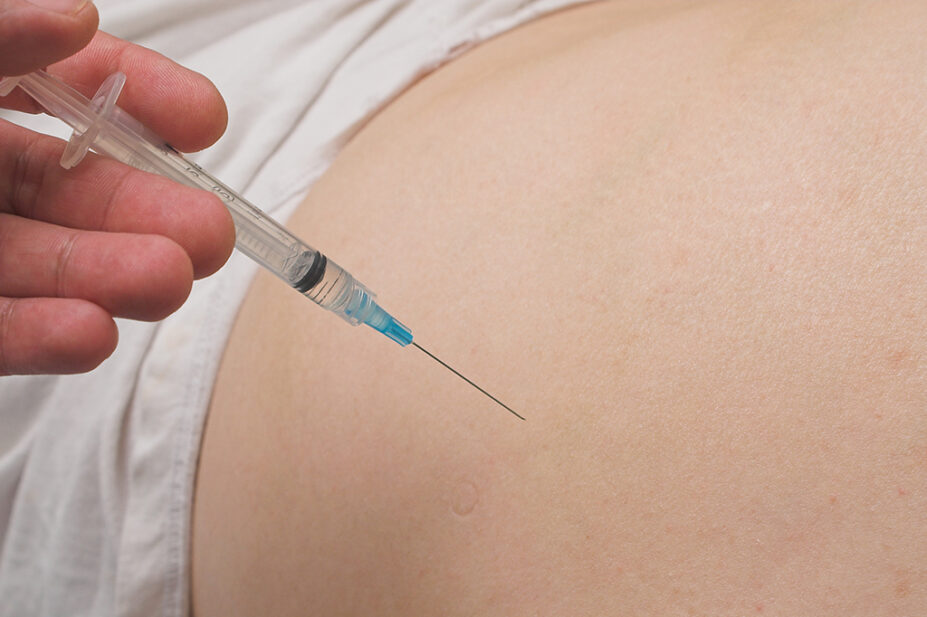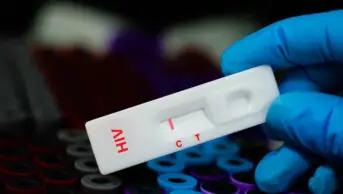
Shutterstock.com
The Medicines and Healthcare products Regulatory Agency (MHRA) has approved cabotegravir, the first long-acting injection treatment for prevention of HIV-1 infection in the UK.
In an announcement published on 3 May 2024, the medicines regulator said two formulations of cabotegravir — a 30mg film-coated tablet and 600mg prolonged-release suspension for injection — have been approved as pre-exposure prophylaxis (PrEP) in adults and adolescents who weigh at least 35kg and are at increased risk of infection.
Cabotegravir is an antiretroviral drug that works by blocking the integrase enzyme, which is required by the HIV-1 virus to replicate in the body. Evidence from clinical trials has shown up to an 88% reduction in HIV-1 among those taking the drug compared to standard PrEP.
Tablet-based PrEP is already available in the UK, but the cabotegravir long-acting injection will be the first injectable PrEP treatment available on the NHS if it is recommended by the National Institute for Health and Care Excellence (NICE).
The MHRA said that patients must have a HIV-negative test before taking cabotegravir and that the daily oral tablets must be trialled for one month prior to starting the injections.
The long-acting injection is to be administered by a nurse or doctor into the buttock muscle six times per year; initially, one injection each month for two months, followed by an injection every two months.
Commenting on the approval, Heather Leake Date, consultant pharmacist in HIV and sexual and reproductive health at University Hospitals Sussex NHS Foundation Trust, who is also a spokesperson for the HIV Pharmacy Association, said: “The licensing of cabotegravir for HIV pre-exposure prophylaxis is a positive step towards protecting people at risk of HIV acquisition for whom existing oral PrEP options are unsuitable; for example, due to homelessness.
“However, there are practical challenges surrounding the use of long-acting injectable PrEP, particularly the potential risk of viral resistance if someone stops injectable PrEP, does not use an alternative method of prevention, and then seroconverts following exposure to HIV between 2 and 12 months after their last injection.
“Hopefully the NICE guidance (due to be published at the end of this year) will address some of the implementation challenges.”
Stephanie Tyler, a specialist pharmacist in HIV, sexual and reproductive health at Guy’s and St Thomas’ NHS Foundation Trust, said: “Cabotegravir long-acting (CAB-LA) injectable PrEP has demonstrated value as an alternative option, particularly for those individuals with intolerances or contraindications to routinely commissioned PrEP.
“When considering the future commissioning of CAB-LA PrEP, challenges may arise from bi-monthly appointment need, which may conflict with the typically reactive attendance nature of sexual health clinics.
“Careful consideration must also be given for training staff to administer injections and medication logistics, such as ordering pre-appointment, safe storage and financial reporting of this high-cost drug.”
Richard Angell, chief executive of the Terrence Higgins Trust, said: “While PrEP is effective for all, it’s usage in women, LGBT people from minority ethnic communities, and young LGBT people has been extremely low.
“Additionally, for those who know about PrEP and want to take it, more than 60% of people are stuck on long waiting lists. Making long-acting injectable PrEP available is a crucial piece of the puzzle in ending these barriers and ensuring we do not miss the historic opportunity to end HIV transmissions in the UK within the decade.”
In April 2023, The Pharmaceutical Journal reported that the ‘PrEP access and equity task and finish group’ — established by the Department of Health and Social Care in October 2022 to identify ways of improving access to PrEP as part of the HIV action plan for England — recommended the establishment of a series of national pilots for PrEP provision in settings outside specialist sexual health clinics, including pharmacies.
However, a government-commissioned reported published in February 2024 revealed that current recommendations for pilot services to improve HIV PrEP access via community pharmacies were still only being considered as “possible future opportunities”.


